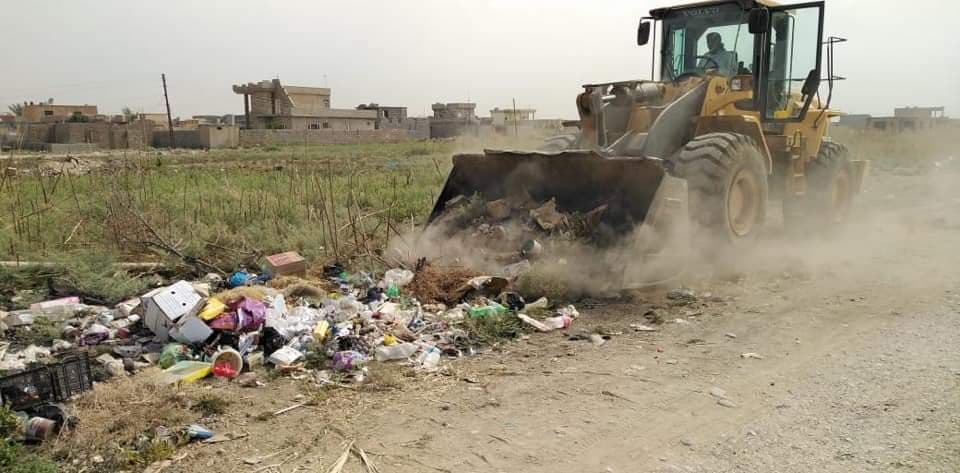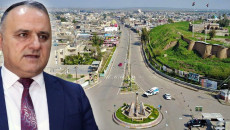The Municipality of Tuz Khurmatu District decided to implement a decision to fine citizens who throw waste in places not designated for it immediately after the end of Eid al-Fitr. The fine will range between 100,000 and 500,000 dinars.
The decision was issued a week ago, but its implementation was postponed until immediately after Eid al-Fitr, (Saturday, April 13, 2024).
Mari Rashid Al-Bayati, director of the Tuz Khurmatu Municipality, told KirkukNow, “Citizens throw dirt and waste in alleys, parks, and in front of hospitals and schools every day. We in turn issued this decision in cooperation with the mayor and the security authorities.”
“The decision was issued because cleaners collect waste daily from the neighborhoods and areas of the district, so we will not allow citizens to throw waste in places not designated for it, and violators will be fined in an amount ranging between 100,000 (USD70) and 500,000 dinars.”
The Tuz Khurmatu municipality has allocated two landfills for waste disposal, one of which is near the municipal garage in the district center, and the other landfill is located in the Chob Qadim area outside the district center.
"The amount of the fine is determined by the District Attorney according to the type of violation," Al-Bayati said
According to statistics from the municipality of Tuz Khurmatu, they collect 200 tons of waste daily.
"The amount of waste has increased due to population growth. In addition, citizens' environmental awareness is not as required and they do not cooperate with us," Tuz Khurmatu Municipality director explained.
The multi-ethnic district of Tuz Khurmatu home to 160,000 Turkmens, Kurds and Arabs, located 70 kilometers south of Kirkuk and part of Salahaddin province, is the only disputed town of the province and one of the disputed territories between Erbil and Baghdad.
The predominantly Sunni-Muslim Arab province of Salahaddin, about 135 kilometers north of the Iraqi capital, once home for Saddam Hussein, is under the control of Iraq's Shia-led paramilitary the Popular Mobilization Forces PMF, known as al-Hashid al-Shabi.
The increasing waste, the spread of the random dumping, as well as the inability to control waste disposal systems, leads to their accumulation and the spread of epidemics and diseases.
Some locals support the procedures by the local authorities in order to put an end to random wast dumping.
Goran Muhammad, a resident of Tuz Khurmatu, supports the municipality’s decision, “Every day, I see many people throwing waste in front of parks and sports fields, which leads to the spread of unpleasant odors that attract flies. We hope that the decision will eliminate this phenomenon.”
“There is no justification for throwing waste in places not designated for that, because waste collection vehicles come to the area every three days,” he added.
The District Municipality did not clarify what it would do with the amounts of fines that will be collected from violators, but some citizens suggest distributing them to cleaning workers since they work on contracts and their monthly salaries do not exceed 200,000 Iraqi Dinars IQD.
Halkawt Muhammad, who lives in a neighborhood built on public land without official permission, said, “Years ago, waste was filling our neighborhood, but currently the municipality is collecting it. It even allocated a container to collect citizens’ waste, but some lack awareness and do not cooperate with the municipality, so I support the municipality’s decision.”
Iraq produces around 30,000 tons of solid waste every day, says the United Nations Developing Program UNDP Iraq in a report out in June 2022.
“The country lacks real waste management infrastructure to dispose this waste in a proper way that ensures no negative environmental nor health effects, therefore, most of it gets disposed in unregulated landfills.”






